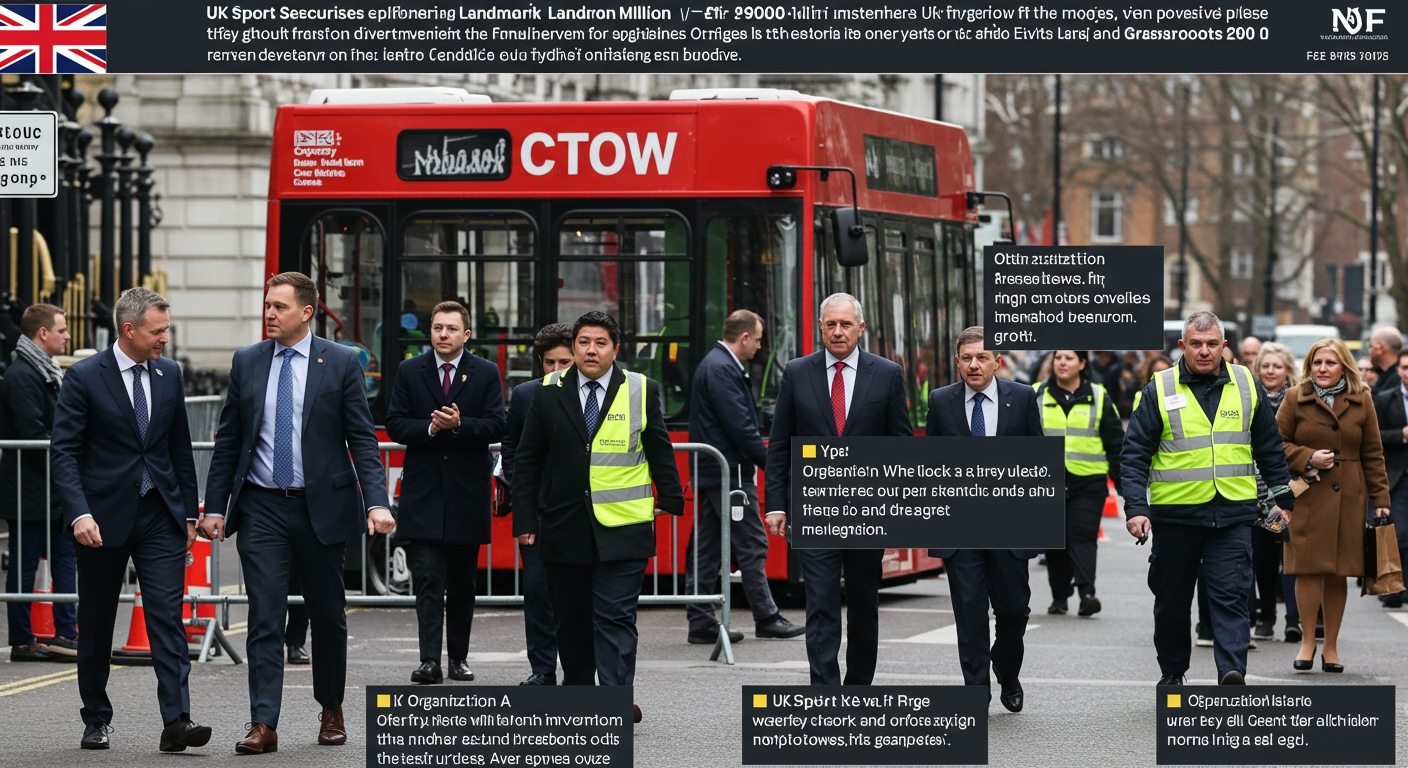The United Kingdom government has unveiled a significant financial commitment to the nation’s sports landscape, pledging more than £900 million (equivalent to approximately US$1.2 billion) in transformative investment. This substantial funding, announced by UK Secretary of State for Culture, Media and Sport, Lisa Nandy, is designated to bolster both the hosting of major international sporting events and the development of grassroots facilities across the country.
The investment package, which was initially outlined in last week’s government Spending Review, is strategically divided to maximise impact at different levels of sport. A considerable portion, exceeding £500 million (approximately US$674 million), is specifically allocated to support the successful delivery of a pipeline of world-class events scheduled to take place in the UK over the coming years. These include highly anticipated fixtures such as the UEFA Euro 2028 football championship, which the UK will co-host with Ireland, the prestigious 2026 European Athletics Championships set to be held in Birmingham, and both the men’s and women’s editions of the Tour de France Grand Departs in 2027. Investing in the infrastructure and operational costs associated with staging events of this magnitude is crucial for their success and for showcasing the UK as a premier destination for international sport.
Boosting Grassroots Participation and Facilities
Crucially, the investment is not solely focused on elite-level events. A minimum of £400 million (approximately US$539 million) is earmarked for direct investment into grassroots sports facilities nationwide. This funding is intended for the creation of new facilities and the upgrading of existing ones, addressing critical needs within local communities. The government’s stated aims for this grassroots investment are manifold: to promote improved public health and wellbeing, foster greater community cohesion, and actively work towards reducing barriers that prevent under-represented groups from participating in sport. Enhancing local sports infrastructure is seen as fundamental to increasing physical activity levels and building stronger, more inclusive communities.
Driving Economic and Social Value
The government anticipates that this comprehensive investment will serve as a powerful catalyst for economic growth. The Department for Digital, Culture, Media & Sport (DCMS) has highlighted the potential economic dividends, projecting that the UEFA Euro 2028 tournament alone is expected to generate up to £2.4 billion in socio-economic value across the United Kingdom. Beyond direct financial returns through tourism and associated spending, hosting major events and improving grassroots access to sport are believed to yield significant benefits in terms of national pride, increased physical activity, volunteerism, and skill development.
A Packed Calendar of Secured Events
The announced funding directly supports a robust calendar of major international sporting events already secured for the UK. In addition to those specifically mentioned in the £500 million allocation, other significant events set to benefit from this government commitment include the Women’s Rugby World Cup 2025 hosted in England, the 2026 Commonwealth Games taking place in Glasgow, and both the ICC T20 Cricket World Cups scheduled for 2026 and 2030. Furthermore, the funding will support the staging of the Invictus Games 2027 in Birmingham, a powerful international multi-sport event for wounded, injured, and sick servicemen and women, both serving and veteran.
Looking Towards Future Hosting Opportunities
Beyond the confirmed schedule of events, the UK government and relevant sporting bodies are actively pursuing future hosting opportunities. Work is currently continuing on a joint bid alongside the home nation football associations and the devolved governments to host the prestigious FIFA Women’s World Cup in 2035. Securing major global tournaments like this is central to the UK’s strategy for leveraging sport to achieve national objectives, including economic growth, increased participation, and enhancing the country’s international standing.
Conclusion
The £900 million investment package represents a significant commitment from the UK government to the future of sport, from the elite level of international competition down to community facilities. By simultaneously backing the hosting of major global events and providing substantial funding for grassroots development, the government aims to deliver a lasting legacy of economic prosperity, improved public health, and increased access to sport for all segments of society. The funding, secured through the recent Spending Review, signals a clear intent to position the UK as a leading nation for both participating in and hosting world-class sport for years to come.





